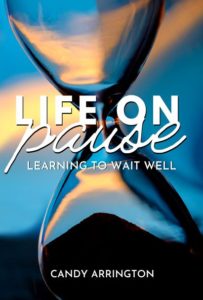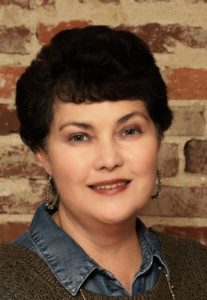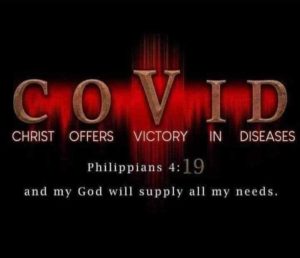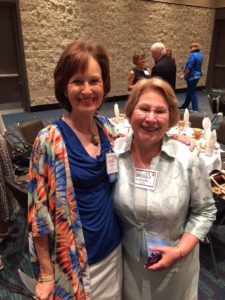Trying To Figure It All Out

Photo by Tom Podmore
SOMETIMES LIFE JUST SEEMS CONFUSING. No matter how we try to figure it all out, things are not fitting together like they should. It might be relationships. It might be a struggle for success that goes nowhere. It might be one problem piling up after another until we can’t regain our balance. It might be anxiety over the world around us. And although we pray, things just don’t seem to get any better.
In a recent Bible study, I encountered the prophet Habakkuk who was heartbroken over the injustice he saw swirling around him. He cried out to God in distress, and God surprised him with an answer. But when God responded to his prayer and told him His plans, Habakkuk continued to be confused. God’s response didn’t align with his expectations. He struggled to understand what God was doing. Instead of relieving his pain, it seemed God’s plans would accelerate the pain.
Habakkuk didn’t get angry or depressed however. Instead he had an attitude of awe. The everlasting God had a plan, and although he didn’t understand it, he knew in God’s goodness and sovereignty, the plan would work everything for good in God’s timing and in His way.
“I will stand my watch and set myself on the rampart, and watch to see what He will say to me, and what I will answer when I am corrected.” Hab 2:1
That was Habakkuk’s response, and it inspires me to grasp hold of the attitude of faith he had that led to that response.
Standing on the Ramparts
Standing on the wall around Jerusalem that protected the nation from coming invaders, Habakkuk could not only look off in the distance in every direction to watch for the enemy’s approach, but also wait to see how God’s plan would unfold. He waited with expectation to see what God would say to him next, and I imagine standing on the walls surrounding Jerusalem was a good place to get alone with God to listen for His voice and get His perspective.
Although Habakkuk was utterly confused by what God was doing, He knew the character of God. He knew that God was sovereign, holy and good, and that He was the rock to hold onto.
Habakkuk’s example of standing on the ramparts speaks volumes to me about a positive way to react when life is confusing or taking an unwanted turn and I just can’t figure it all out.
In times of waiting, when we can’t figure it all out, taking a step away from our circumstances can offer a new perspective. But even better, if, like Habakkuk, we position ourselves on the ramparts, we can see beyond the problems engulfing us. And if we ask God to come along beside us, his very presence lifts us above our circumstances. As we trust in Him further, He gives us eyes to see and ears to hear.
When I think about standing on the ramparts myself, I might actually be sitting on my screen porch, but I picture myself surrounded by miles and miles of a blue, cloudless sky looking out over a large distance—not necessarily of space, but of time. I begin by peering into the future of God’s promises and then into the past where He has already fulfilled many promises and answered many prayers:
As I gaze into my own past, I remember surprising twists and turns God allowed in my life that brought unexpected blessings
As I ponder scriptural stories, I uncover promises fulfilled in past generations which makes me want to dig down further into God’s character so I can understand more about this amazing God who is not only the creator of the universe but the God “who sees me.” (Gen: 16:13)
As I “stand on the ramparts,” allowing those reflections to take root in m heart, I can wait on Him to speak new truths into my heart and give me fresh understandings of His Word. And when that happens, I begin to see with God’s perspective.
There’s something secure and steady about the idea of standing on the ramparts. It’s not a temporary, stand or just a little break while I try to figure it all out. Habakkuk was standing on the ramparts as a long term strategy. He would stay there until God spoke to him.
An Attitude of Awe and Humility
But Habakkuk not only stood on the ramparts with an attitude of awe. He also stood before God with humility, knowing that his own understanding and interpretations were often flawed. “I will stand my watch and set myself on the rampart, and watch to see what He will say to me, and what I will answer when I am corrected.” Hab 2:1
The beauty of his words is in his unassuming posture and realization that it’s the humility of a surrendered heart before God that truly brings us answers. Habakkuk had already encountered God’s correction in the dialogue he’d just had with God. And he was ready for more. When we’re too full of our own preconceptions, we leave little room for God to speak to us. When our hearts are hollowed out, God’s powerful words can fill the void.
God is in this with us. We are not alone, and as we stand apart from our circumstances, humbly looking for God’s perspective we can stand strong and hopeful, secure in His sovereign power and love.
If we are standing on the ramparts humbly waiting on God, we don’t know what we will hear or what He will bring our way, but if we’re looking in all directions with open eyes and ears, if we are alert to His voice, we can anticipate wonders that only He can orchestrate. And we’ll be ready to receive them.
“Trust in the Lord with all your heart and lean not unto your own understanding. In all your ways acknowledge Him and He will direct your paths.” Proverbs 3:5-6
(As a side note: You might want to read the book of Habakkuk for yourself. It’s very short (3 chapters), but a powerful example for us today. Habakkuk was a prophet in the last days before Judah’s fall. He was distressed over the corruption and sin he saw everywhere. And although he was glad that God answered him, he trembled at the prophecy of an invading and ruthless army that would come and conquer Judah as an answer to his prayer for justice. “My heart pounded . . . my lips quivered.” Yet I will wait patiently for the day of calamity. . .Though the fig tree does not bud and there are no grapes on the vine . . .yet I will rejoice in the Lord, I will be joyful in God my Savior, the Sovereign Lord is my strength. . . .” Hab. 3:16-17)
If you are standing with a troubled marriage on hold, trying to figure it all out and you want to see how God will lead you, I encourage you to check out my two books, Broken Heart on Hold and Fighting for Your Marriage while Separated.

 IT’S AMAZING TO ME how often God uses delays and waiting to bring blessing to those He loves in the stories of the Bible. But I’m struck by the fact that God also often uses these delays to test the hearts of those in waiting to see if they are worthy of the blessing he is about to bestow.
IT’S AMAZING TO ME how often God uses delays and waiting to bring blessing to those He loves in the stories of the Bible. But I’m struck by the fact that God also often uses these delays to test the hearts of those in waiting to see if they are worthy of the blessing he is about to bestow.














